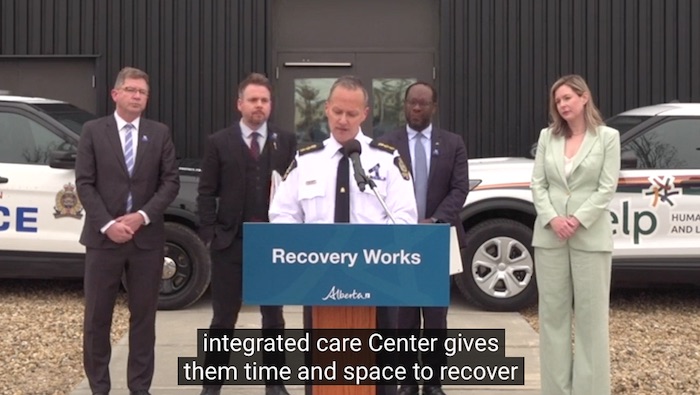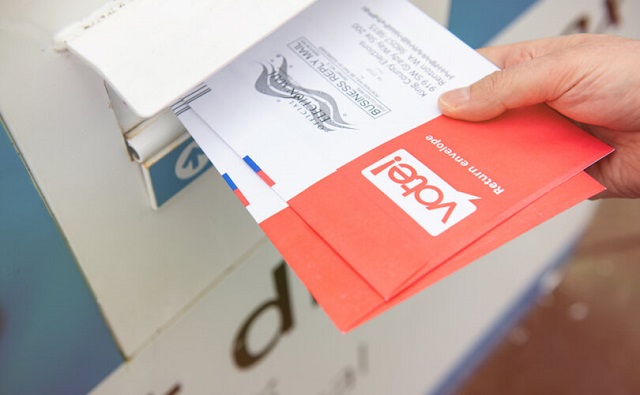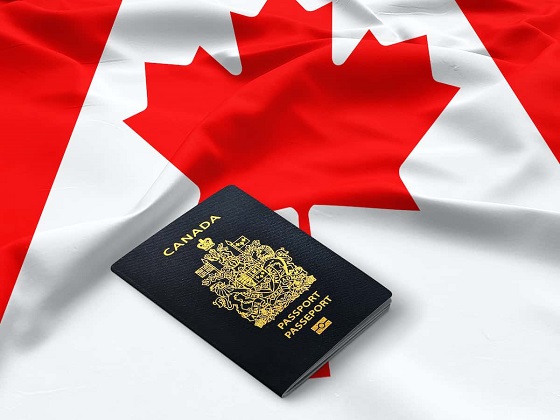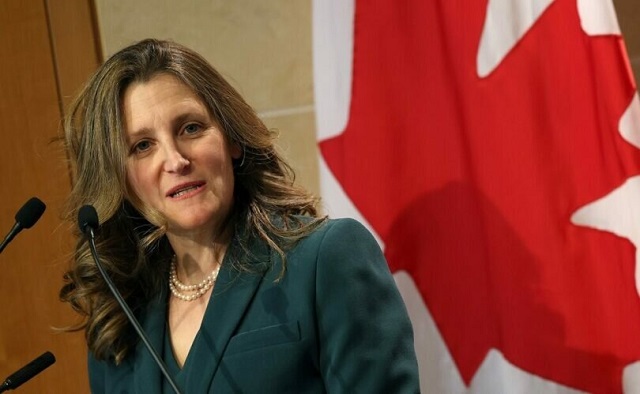Addictions
Province providing $17 Million to double crisis teams in Edmonton adding support throughout the city

Helping people in need, keeping Edmonton safe
Alberta’s government is partnering with the Edmonton Police Service (EPS) to help address the addiction crisis by connecting more people to much-needed supports.
Alberta’s government is continuing to take action to keep communities safe while treating mental health and addiction as health care issues. Through Budget 2023, an investment of $17 million over three years will double the number of Human-centred Engagement and Liaison Partnership (HELP) teams in Edmonton and provide recovery-oriented health supports to people in EPS custody.
“We are continuing to take a fair, firm and compassionate approach towards addressing addiction and mental health issues while keeping communities safe. Police are vital partners in addressing the complex social challenges facing Edmonton, and our government is proud to be partnering with them to help connect Albertans to the supports that they need.”
“Edmonton police are serving on the front lines of the addiction crisis and have an important role to play. This funding brings together health professionals, community partners and police through partnerships that share a common goal: helping more people get well and pursue recovery while keeping our communities safe.”
“As MLA for Edmonton-South West, I am pleased to see that our government has allotted much needed funding to create more HELP teams to support the Edmonton Police Service. The new support will help address the public safety, mental health and addiction crisis in the city. The safety of the people of Edmonton is paramount. No one should be afraid to walk alone in our streets. We all share a common goal of providing adequate supports while keeping our communities safe”.
This funding includes:
- $3.5 million for 12 new social navigator positions and two team leads, which will double the number of HELP teams in Edmonton
- $2 million for eight new social navigator positions to support the EPS Divergence and Desistance Branch
- $2.4 million for eight mental health therapists to support Edmonton’s 911 Dispatch Centre and EPS officers over the phone with clinical expertise
- $6.3 million to add the following health professionals:
- two full-time health care practitioners, two paramedics, two recovery coaches and 12 community safety officers at EPS Downtown Division
- two paramedics at EPS Northwest Division
- $2 million for equipment, training, administrative and other related costs
- $858,000 in one-time capital funding for six new HELP team vehicles and facility upgrades
These initiatives are part of ongoing efforts led by the Edmonton Public Safety and Community Response Task Force to improve public safety while treating addiction and mental health as health care issues. These efforts also include tripling the number of Police and Crisis Teams (PACT) in Edmonton to support people experiencing a mental health crisis.
Expanding outreach teams in Edmonton
Like many large cities, Edmonton has been hard hit by the addiction crisis, and this is especially evident in the downtown area. Expanding outreach teams in Edmonton will help respond to an urgent need to connect people struggling with mental health and addiction to critical services and mitigate social disorder.
“Community wellness and community safety go hand in hand. The HELP team has shown impressive results, and we are proud to continue building on their good work and introduce more integrated health services for people in police custody. We are grateful for the support of the government. These actions are important steps in responding to the complex social issues facing our city.”
“Additional support for the HELP teams is positive news for Edmonton. This investment is key in breaking the cycle, by shifting the focus on mental health and addiction away from enforcement and directing individuals to programs and services that can help them live with hope and dignity.”
Alberta’s government is doubling the number of HELP teams in Edmonton. These teams pair police officers with social navigators from local community organizations who can help Albertans access recovery-oriented supports. The province is also providing funding to add social navigators to the EPS Divergence and Desistance Branch, which works with individuals who most frequently interact with the health and justice systems, and to place AHS mental health therapists in Edmonton’s 911 Dispatch Centre and to have mental health therapists available to support EPS officers over the phone with clinical expertise.
Providing addiction and mental health support in police custody
Police officers frequently respond to calls related to addiction and mental health. By offering a range of services and supports for people in police custody, Alberta’s government can support Albertans with complex addiction and mental health challenges while improving public safety for everyone.
People detained on a public intoxication charge will be assessed and provided options for treatment and support in a secure environment at the Edmonton Police Service Downtown Division. This location is close to both the downtown core and Chinatown, which are areas of Edmonton where significant public safety concerns have been identified by the city, local businesses, business associations and Edmontonians. Health professionals will offer medical support, connect clients with other social and mental health and addiction supports, and provide referrals to programs like the Virtual Opioid Dependency Program, which provides same-day access to life-saving medications.
In December 2022, Alberta’s government established two cabinet task forces to bring community partners together to address the issues of addiction, homelessness and public safety in Calgary and Edmonton. The two Public Safety and Community Response Task Forces are responsible for implementing $187 million in provincial funding to further build out a recovery-oriented system of addiction and mental health care. The initiatives being implemented are part of a fair, firm and compassionate approach to keeping communities safe while treating addiction and mental health as health care issues.
Budget 2023 secures Alberta’s future by transforming the health care system to meet people’s needs, supporting Albertans with the high cost of living, keeping our communities safe and driving the economy with more jobs, quality education and continued diversification.
Quick facts
- Health services staff at the EPS Downtown Division will be able to assess and help up to 17 people at any given time.
- This funding is part of the $63 million for initiatives that specifically increase access to addiction treatment and support in Edmonton, implemented through the Edmonton Public Safety and Community Response Task Force.
- Albertans experiencing addiction or mental health challenges can contact 211 for information on services in their community. 211 is free, confidential and available 24-7.
- Albertans struggling with opioid addiction can contact the Virtual Opioid Dependency Program (VODP) by calling 1-844-383-7688, seven days a week, from 8 a.m. to 8 p.m. daily. VODP provides same-day access to addiction medicine specialists. There is no wait list.
Addictions
Why can’t we just say no?

From the Frontier Centre for Public Policy
Drug use and violence have become common place in hospitals. Drug-addicted patients openly smoke meth and fentanyl, and inject heroin. Dealers traffic illicit drugs. Nurses are harassed, forced to work amidst the toxic fumes from drugs and can’t confiscate weapons. In short, according to one nurse, “We’ve absolutely lost control.”
“Defining deviancy down” is a cultural philosophy that emerged in the United States during the 1990s.
It refers to society’s tendency to adjust its standards of deviancy “down,” so that behaviours which were once unacceptable become acceptable. Over time, this newly- acceptable behaviour can even become society’s norm.
Of course, the converse must also be true — society looks down on those who label social behaviours “wrong,” deeming them moralistic, judgemental or simply out of touch with the realities of modern life.
Thirty years later, this philosophy is entrenched in British Columbia politics and policies. The province has become a society that cannot say “no” to harmful or wrong behaviours related to drug use. It doesn’t matter if you view drug use as a medical issue, a law-and-order issue, or both – we have lost the ability to simply say “no” to harmful or wrong behaviour.
That much has become abundantly clear over the past two weeks as evidence mounts that BC’s experiment with decriminalization and safe supply of hard drugs is only making things worse.
A recently-leaked memo from BC’s Northern Health Authority shows the deleterious impact these measures have had on BC’s hospitals.
The memo instructs staff at the region’s hospitals to tolerate and not intervene with illegal drug use by patients. Apparently, staff should not be taking away any drugs or personal items like a knife or other weapons under four inches long. Staff cannot restrict visitors even if they are openly bringing illicit drugs into the hospital and conducting their drug transactions in the hallways.
The public was quite rightly outraged at the news and BC’s Health Minister Adrian Dix quickly attempted to contain the mess by saying that the memo was outdated and poorly worded.
But his facile excuses were quickly exposed by publication of the very clearly worded memo and by nurses from across the province who came forward to tell their stories of what is really happening in our hospitals.
The President of the BC Nurses Union, Adriane Gear, said the issue was “widespread” and “of significant magnitude.” She commented that the problems in hospitals spiked once the province decriminalized drugs. In a telling quote, she said, “Before there would be behaviours that just wouldn’t be tolerated, whereas now, because of decriminalization, it is being tolerated.”
Other nurses said the problem wasn’t limited to the Northern Health Authority. They came forward (both anonymously and openly) to say that drug use and violence have become common place in hospitals. Drug-addicted patients openly smoke meth and fentanyl, and inject heroin. Dealers traffic illicit drugs. Nurses are harassed, forced to work amidst the toxic fumes from drugs and can’t confiscate weapons. In short, according to one nurse, “We’ve absolutely lost control.”
People think that drug policies have no impact on those outside of drug circles – but what about those who have to share a room with a drug-smoking patient?
No wonder healthcare workers are demoralized and leaving in droves. Maybe it isn’t just related to the chaos of Covid.
The shibboleth of decriminalization faced further damage when Fiona Wilson, the deputy chief of Vancouver’s Police Department, testified before a federal Parliamentary committee to say that the policy has been a failure. There have been more negative impacts than positive, and no decreases in overdose deaths or the overdose rate. (If such data emerged from any other healthcare experiment, it would immediately be shut down).
Wison also confirmed that safe supply drugs are being re-directed to illegal markets and now account for 50% of safe supply drugs that are seized. Her words echoed those of BC’s nurses when she told the committee that the police, “have absolutely no authority to address the problem of drug use.”
Once Premier David Eby and Health Minister Adrian Dix stopped denying that drug use was occurring in hospitals, they continued their laissez-faire approach to illegal drugs with a plan to create “safe consumption sites” at hospitals. When that lacked public appeal, Mr. Dix said the province would establish a task force to study the issue.
What exactly needs to be studied?
The NDP government appears to be uninformed, at best, and dishonest, at worst. It has backed itself into a corner and is now taking frantic and even ludicrous steps to legitimize its experimental policy of decriminalization. The realities that show it is not working and is creating harm towards others and toward institutions that should be a haven for healing.
How quickly we have become a society that lacks the moral will – and the moral credibility – to just to say “no.”
Susan Martinuk is a Senior Fellow with the Frontier Centre for Public Policy and author of Patients at Risk: Exposing Canada’s Health-care Crisis.
Addictions
British Columbia should allow addicts to possess even more drugs, federal report suggests

From LifeSiteNews
Despite the drug crisis only getting worse in British Columbia after decriminalization, a federal report by the Canadian Institutes of Health Research advocates for further relaxing its policy so addicts can possess even more drugs.
Despite the drug crisis only worsening since decriminalization, federal researchers are now advocating for British Columbia to allow the possession of even larger quantities of cocaine, claiming that current possession limits don’t allow addicts to buy enough.
According to a federal report published April 23 by Blacklock’s Reporter, the current decriminalization program in British Columbia approved by Prime Minister Justin Trudeau’s government has set cocaine possession limits “too low.”
“People who use drugs are less concerned about being arrested and feel more comfortable carrying substances they need,” said the report by the Canadian Institutes of Health Research. “The threshold of 2.5 grams is too low and is unreflective of users’ substance use and purchasing patterns.”
Under the policy, which launched in early 2023, the federal government began allowing people within the province to possess up to 2.5 grams of hard drugs – including cocaine, opioids, ecstasy and methamphetamine – without criminal penalty, but selling drugs remained a crime.
The policy has been widely criticized, especially after it was found that the province broke three different drug-related overdose records in the first month the new law was in effect.
However, now researchers are claiming that the new policy is insufficient for drug users.
“People who use drugs indicated the 2.5 gram threshold is too low and unreflective of their substance use patterns,” the report stated. “Although some people indicated the policy wouldn’t impact their purchasing patterns because they are unable to purchase large amounts at a time, others suggested it may force them to seek out substances more frequently which could increase their risk of harms.”
“Buying in bulk may be more economical particularly for people who use drugs,” it continued, adding that it was “common practice to purchase in bulk and split or share among peers.”
The recommendation comes as deaths from drug overdoses in Canada have gone through the roof in recent years, particularly in British Columbia.
The effects of decriminalizing hard drugs in various parts of Canada has been exposed in Aaron Gunn’s recent documentary, Canada is Dying, and in U.K. Telegraph journalist Steven Edginton’s mini-documentary, Canada’s Woke Nightmare: A Warning to the West.
Gunn says he documents the “general societal chaos and explosion of drug use in every major Canadian city.”
“Overdose deaths are up 1,000 percent in the last 10 years,” he said in his film, adding that “[e]very day in Vancouver four people are randomly attacked.”
Similarly, even Liberals have begun to condemn Trudeau’s “safe supply” program, linking them to “chaos” in cities.
“Safe supply“ is the term used to refer to government-prescribed drugs that are given to addicts under the assumption that a more controlled batch of narcotics reduces the risk of overdose – critics of the policy argue that giving addicts drugs only enables their behavior, puts the public at risk, disincentivizes recovery from addiction and has not reduced, and sometimes even increased, overdose deaths where implemented.
Last week, Liberal MP Dr. Marcus Powlowski revealed that violence from drug users has become a problem in Ottawa, especially in areas near so-called “safe supply” drug sites which operate within blocks of Parliament Hill.
“A few months ago I was downtown in a bar here in Ottawa, not that I do that very often, but a couple of colleagues I met up with, one was assaulted as he was going to the bar, another one was threatened,” said Powlowski.
“Within a month of that I was returning down Wellington Street from downtown, the Rideau Centre, and my son who is 15 was coming after me,” he continued. “It was nighttime and there was someone out in the middle of the street, yelling and screaming, accosting cars.”
-

 espionage1 day ago
espionage1 day agoOne in five mail-in voters admitted to committing voter fraud during 2020 election: Rasmussen poll
-

 Business1 day ago
Business1 day agoHonda deal latest episode of corporate welfare in Ontario
-

 Automotive1 day ago
Automotive1 day agoThe EV ‘Bloodbath’ Arrives Early
-

 CBDC Central Bank Digital Currency15 hours ago
CBDC Central Bank Digital Currency15 hours agoA Fed-Controlled Digital Dollar Could Mean The End Of Freedom
-

 Brownstone Institute14 hours ago
Brownstone Institute14 hours agoThe Numbers Favour Our Side
-

 Frontier Centre for Public Policy11 hours ago
Frontier Centre for Public Policy11 hours agoHow much do today’s immigrants help Canada?








